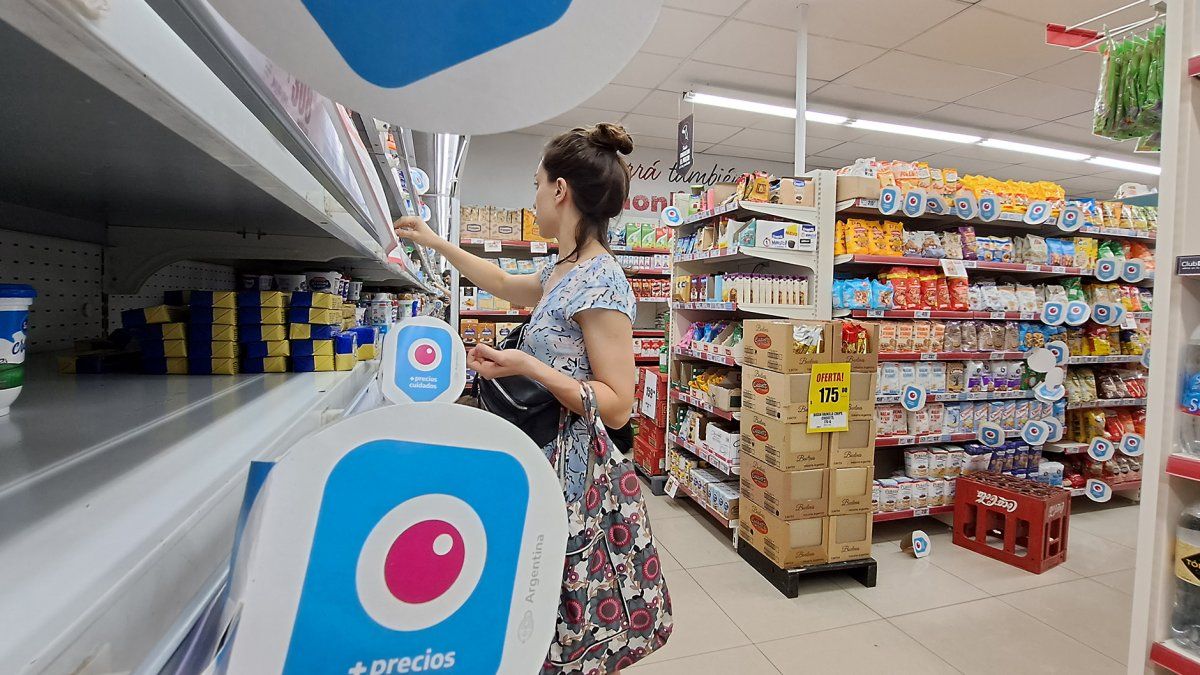The projections between local and foreign analysts showed an average advance of 5.9% for the January CPI, accelerating 0.8 tenths compared to January. In the case of Econviews, they project a monthly 5.6% for the first month of the year.
According to Isaías Marini, economist at the consultancy: “Inflation in January was mainly driven by increases in regulated prices. In this sense, the highest incidence came from the ‘housing, electricity, gas and other fuels’ division due to the increase in tariffs of electricity, gas and water in the AMBA (Federal Capital and surroundings)”.
The adjustment of public transport fares in the AMBA (by far the region with the greatest weight in the index) and the rise in fuels (both in the Transportation division), Health and Telecommunications also had an impact on the index. .
Therefore, the consultant projects that, for February and March, it will be very difficult to lower it, rather the chances are that it will rise a little more and they do not rule out that “one month it will start again with 6 ahead.”
parity-inflation-wages
Depositphotos
For its part, the Libertad y Progreso Foundation estimated inflation at 6.3%, also supported by the headings of “Housing, Water and Electricity” given the removal of energy subsidies and rent increases, also “transportation” with the rise in bus tickets in AMBA and the agreement on gasoline from the Fair Prices program.
“Looking ahead to February, for now the absence of significant increases in regulated prices would contribute to a moderation in the CPI rise. However, inflationary dynamics will continue to be above 5% per month, which would lead to the price barrier being crossed.” 100% annual in the general CPI”alert.
“The problem is not in the shelves, but in the constant depreciation of our currency caused by mistrust in officials and an excess of money supply. At the moment, there are no theoretical reasons to think that inflation will go down and uncertainty in an election year the situation can even worsen,” said Lautaro Moschet, an economist at that foundation.
What is expected from today’s CPI
Analysts’ estimates ranged from a minimum advance of 5.2% to a maximum of 6.5% for inflation in January.
For C&T Asesores Económicos, the number will be around 6.3% due to the scheduled price increases, the seasonal jump in tourism and the increase in food and non-alcoholic beverages, which would have increased at a higher rate than in December, around at 5.3%.
The inflation of workers, carried out by the Metropolitan University for Education and Work (UMET) and the Center for Concertation and Development (CCD), stood at 5.5%, reaching 98% in the last twelve months, highest mark since 1991.
The rise was driven by “seasonal products such as tourism, fruits and vegetables, accelerating by 0.2 percentage points compared to the 5.3 registered in December.”
For its part, Ecolatina expects a value of 5.5% due to the dynamics of food and regulated services. While Ecogo reached 5.6% and Analytica measures 5.8%.
The Secretary of Commerce, Matías Tombolini, acknowledged that there was an acceleration in January given by “the seasonality and the weight of the service category in these months, which is more tourism and recreation.”
Among other things, he recognized that price controls are not going to lower inflation per se, but that the objective is to “close the fiscal gap and monetary financing of the deficit, issue less and accumulate reserves as one of the complementary tools of the prices that cannot exist in a vacuum. It is a price program that tries to operate on inflation expectations, but based on closing the fiscal gap and accumulating reserves.”
Ministry of Economy Treasury

Economy seeks to continue financing itself in the local debt market.
Ignacio Petunchi
Meanwhile, the Secretary of Industry, José Ignacio de Mendiguren, admitted that inflation will be “higher than December.”
“People buy the same, with prices that should not be validated and that did not help us. There were also some seasonal problems during the first month of the year,” the official explained.
“This happens among other reasons because in the season there was a movement of tourism and price abuses, the limit is often set by people’s purchasing power“, he indicated.
For his part, the new head of presidential advisers, Antonio Aracre, said that between January and February the drought and the change in the logic of cattle retention played a trick, impacting the increase in meat.
He recognized that in March, with the start of classes, there will be school adjustments and supplies, so it will be difficult to reach the 3.8% that Minister Massa promised, but he pointed out that in April there is “every opportunity to get to that step.”
Source: Ambito




